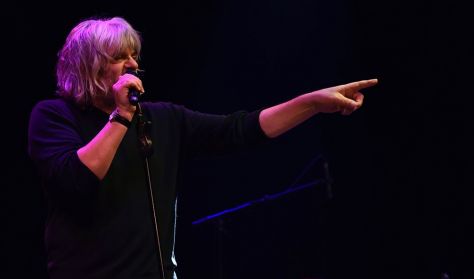
Hobo: Látnokok, költők, csavargók / LITERÁRIUM EXTRA - A Magyar Költészet Napja / BTF 2018

Ön egy múltbeli eseményre keresett rá. Kérjük, válogasson aktuális kínálatunkból a Jegy.hu keresőjében!
Last event date: Tuesday, April 10 2018 8:00PM
Poetry and music used to be inseparable, but by the time I had grown up, their links had become unsubstantial. Rock music did not yet exist when I was a teenager. I devoured volumes of poetry, and listened to Mensáros and Latinovits.
Later, Kex and Feri Sebő produced incredible musical settings, demonstrating how the two arts can join again. Later still, encouraged by translations of Ginsberg, Morrison, and Dylan, I started to write lyrics, heartened by the quality such masters could instil rock and blues with.
In the late 1960s I considered rock a real, even revolutionary, form of art. I thought it could be connected to the other arts. Well, that didn’t work out either.
By the time I founded Hobo Blues Band ten years later, it had become obvious that Hungarian musicians, save for Tamás Cseh, had no intention to express themselves or their time, trying instead to fit in talent shows and secure record contracts – which was completely acceptable.
When it came to reciting poems at the concerts, I did not announce them self-importantly, expecting the audience to be awed. The blues songs and the poems ran together, so some of my listeners thought I had written these things. When the truth transpired, Attila József and Ginsberg volumes were stolen from libraries.
I have selected poems I feel close to. Also, they work better than something I could have written.
“...but my plaintive song pays so well,
and infamy is my new friend...” Attila József may have written this, but this was me in 1981, sadly, and still is.
This show is about freedom, and its framework is provided by Attila József’s free prose piece, “Teachings,” which connects the poems of Villon, Shakespeare, Mihály Csokonai Vitéz, Petőfi, Ady, Attila József, Faludy, Pilinszky, Ginsberg, Morrison, Vysotsky, Tom Waits, and Bob Dylan.
If you have read this far, I look forward to meeting you there. Best regards,
Hobo
Közel két évszázada ad reményt és erőt „e rút világban” Liliomfi és Mariska minden ukázt felülíró szerelme, Szellemfi játékkedve és a teátristák fantáziája.
„Nem fiatalok. Nem szépek. Nem hibátlanok. De ma este színpadra lépnek, és le sem engedjük őket, míg nem marad – alul semmi!”
Dumaszínház est
Alen Menken, Stephen Schwartz és Peter Parnell varázslatosmusicalje Victor Hugo ikonikus regényéből, a Disney rajzfilmje alapján készült. A darab érzékenyen…
A színpadon négy díva, négy csodálatos nő, akik mesterei a humornak és varázslatosan énekelnek...
item(s) in basket
total:
Time limit has expired. Please, put item(s) in to basket again.